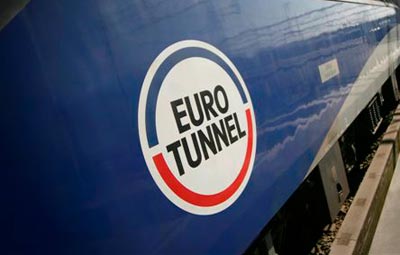France and UK fail to implement European rules regarding the Channel Tunnel
20/06/2013

The European Commission has sent a formal request to France and the United Kingdom to comply with EU rules against excessive track access charges for passenger and freight trains in the Channel Tunnel. The Commission has also asked them to ensure a fully independent regulator and to end an agreement which currently reserves capacity for certain train operators in a restrictive way. The high track access charges get passed on to passengers in their ticket prices and rail freight companies complain that they cannot afford to send more freight through the Tunnel – it remains on the roads causing congestion and pollution.
Vice-President of the European Commission Siim Kallas said: "'The Channel Tunnel is not being used to its full capacity because of these excessive charges. As a result, more freight is being carried on lorries instead of by rail, freight operators and their customers are being over-charged, and passenger are paying over-the-odds for their tickets. The current regime is also stifling growth in the rail sector".
Background
France and the UK have failed to comply with key provisions the 2001 First Railway Package (Directives 91/440/EEC and 2001/14/EC, now replaced by the Rail Recast ) with respect to the Channel tunnel fixed link. The key problems are as follows:
High track access charges
Excessive track access charges mean higher prices for rail passengers and rail freight companies when using the Tunnel. It also discourages new railway operators from entering the market. EU rules require track access charges to be set on the basis of direct/marginal costs – the cost directly incurred as a result of operating a train service. As an exception for specific investment projects only, higher charges can be set on the basis of the long-term costs of such projects.
The current track access charges for use of the Channel Tunnel infrastructure do not appear to be based on direct costs or the long term investment costs of building the Tunnel. The Commission has been contacted by numerous stakeholders who complain that the charges for use of the Channel Tunnel are far too high. The charging structure is complex, but as an example, charges are: for passenger trains (depending on the time of day): 16.6 € per passenger plus at least a reservation fee of 4320 € (one way); for freight trains (depending on time of day): at least 3645 € per train (one way). The Commission considers that these should be considerably lower.
Currently only one rail passenger operator, Eurostar, operates through the tunnel despite international rail passenger market opening on January 1st 2010. While there are several rail freight operators, there are on average only 6 freight trains going through the Tunnel per day – this is far below capacity. In total, 43% of the Tunnel capacity is unused.
A weak rail regulator
The Tunnel has its own rail regulator – The Intergovernmental Commission (IGC). The regulator should monitor competition and take decisions on its own initiative to solve market problems effectively, in particular as regards the compatibility of charges with EU rules. The IGC, as it is currently set up, does not have the power to adopt decisions on its own initiative without a complaint.
EU legislation also requires the independence of the regulator from railway operators and infrastructure managers. Today, the IGC is not independent. The IGC is made up of representatives appointed by the UK and French governments. Eurostar is controlled by SNCF (55% interest) and LCR (40% interest, French and UK state-owned companies respectively. Lack of independence of a rail regulator can lead to failure by the regulator to address complaints by operators in an independent manner or to adopt decisions to force compliance with EU rules and thus can lead to distortions of competition.
A Restrictive Usage Agreement
A usage agreement (1987) between Eurotunnel and certain operators , which allocates capacity to certain train operators for 65 years, is not permitted under EU rules because of its duration - this kind of agreement can only be agreed on a temporary basis.
Member States were required to implement the provisions of the First Rail Package by 15 March 2003. The first round of infringements was taken against 24 Member States, including France and the United Kingdom in 2008, however, those letters did not address the specific issues relating to the Channel Fixed Link. In 2011 the Commission raised this issue with France and the United Kingdom, and had hoped it could be resolved through informal negotiations however, contacts to date have not resolved the non-compliance.
The formal request to France and the United Kingdom to comply with EU rules comes in the form of a "reasoned opinion". France and the United Kingdom have two months to respond to today's reasoned opinion. If they fail to do so, the Commission may bring both cases to the EU Court of Justice.
Eurotunnel – key facts (source Eurotunnel):
- 43% of tunnel capacity is currently unused.
- Rail passenger traffic has increased slowly in recent years - 9.9 million passengers used the Tunnel in 2012 compared to 9.7 in 2011 .
- However, rail freight traffic is declining. Only 2325 freight trains passed through the tunnel in 2012 (down from 2388 in 2011 and 2718 in 2008).
- Shuttle services (both passenger and freight) operated by Eurotunnel are excluded from most EU rail rules including on track access charging and are not covered by this infringement.
Useful links
On the June infringement package decisions: MEMO/13/583
On infringement procedures in general, see MEMO/12/12
More information on infringement procedures


